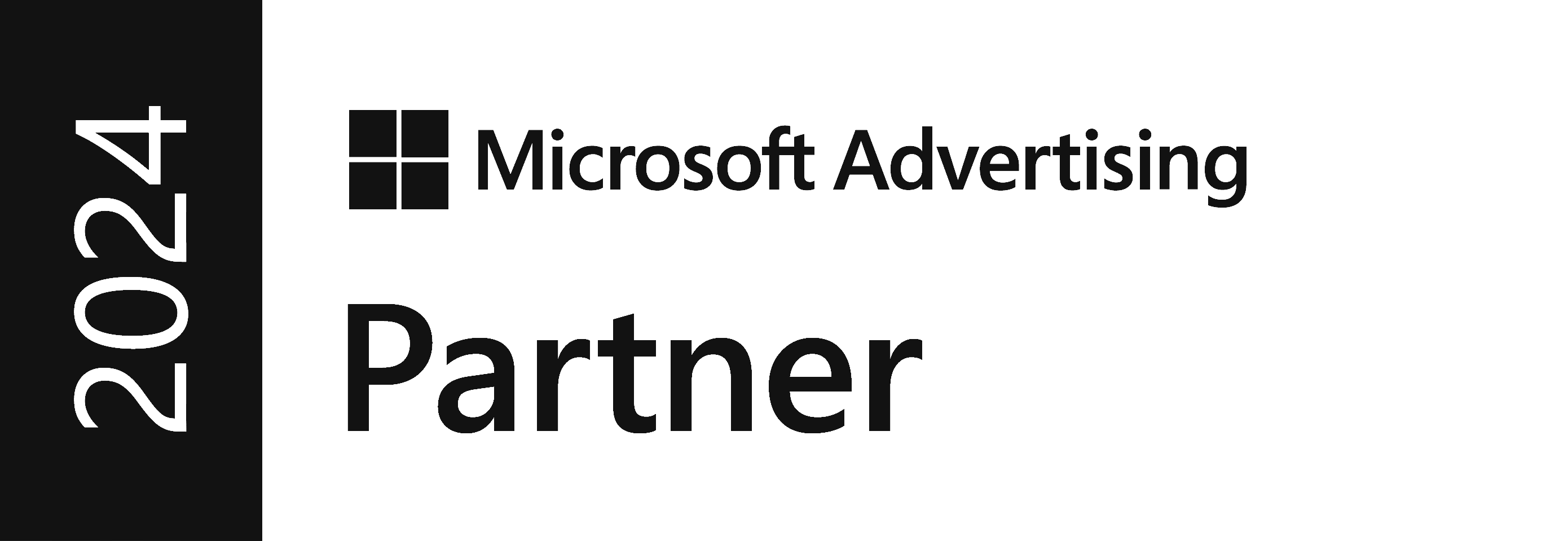In the fast-paced world of marketing, staying ahead of the curve is essential. The rise of Generation Z, born from the mid-1990s to the early 2010s, has brought a fresh set of challenges and opportunities for brands to explore. Gen Z marketing is markedly distinct from previous generations, given their values, technological prowess, socially conscious mindset and most importantly, their sense of humour.
Although the more traditional marketing techniques such as billboards, TV adverts and print are still alive, if your brand doesn't implement Gen Z marketing into its strategy, you’re going to miss out on a lot of business from a demographic that is underappreciated and ignored by these traditional methods. Of course, this doesn’t apply to every business in the entire world, but it will benefit those modern brands who are selling a product or a service online.
Firstly, Who Are Gen Z?
You probably know who they are already, but for those who aren’t 100% sure, let’s go over it.
Generation Z, often abbreviated as Gen Z, refers to the demographic cohort that comes after the Millennial generation. While there is no universally agreed-upon range of birth years for Gen Z, they are generally considered to be born from the mid-1990s to the early 2010s. The exact boundaries may vary, and different sources might use slightly different date ranges.
Some key points about Gen Z include:
· Heavily influenced by technology, especially the internet and social media
· Digital natives who grew up with technology from a young age
· Characterised by diverse ethnic and cultural backgrounds
· Socially conscious with a focus on issues like climate change, social justice, and equality
· Shaped by events such as the Great Recession, the rise of smartphones, and the advent of social media
· Values and worldview influenced by their unique experiences and the global context of their upbringing.
So, how do I market towards this demographic? Well, I’m glad you asked.
Mission Matters
Unlike their predecessors, Gen Z seeks more than just products from the brands they support; they crave purpose and authenticity. Brands that showcase a clear mission and actively contribute to positive change resonate more with this generation. They want to be able to align themselves with brands that share their values and champion causes they believe in.
A great example of this would be Levi’s “Buy Better, Wear Longer” campaign, that started back in 2021. The central message encourages people to extend the lifespan of their clothing, and to stop throwing away clothes. It also promotes the adoption of second-hand clothing, aligning with the ethos of mindful consumption and fostering a more sustainable fashion culture.
The movement garnered endorsement from numerous young celebrities, who subsequently emerged as its icons. Jaden Smith, Melati Wijsen, Emma Chamberlain, Xiuhtezcatl, Xiye Bastida, and Marcus Rashford, alongside activists from various corners of the globe, rallied in support of the Levi's campaign.
This campaign was a success, as it strategically focused on Gen Z, recognising them as both primary consumers and key contributors to sustainability and environmental progress. By targeting this demographic, the campaign urged young individuals to play a proactive role in fostering sustainability, therefore improving trust with the brand, which ultimately led to more sales of their clothes.
Scepticism and Accountability
However, although sustainability is an important issue for Gen Z, keep in mind that they are not easily swayed by advertising tactics. They are quick to call out dishonesty, unethical practices, or inconsistency, and make their voice known across multiple social media platforms if they feel that this is the case.
A great example of this would be what happened to Brewdog back in 2022, where they lost their B-Corp status due to having toxic work environments.
For brands to be successful in 2024, they need to be transparent, accountable for their actions, and willing to learn from mistakes, as this generation values honesty and expects brands to uphold ethical standards.
There’s an article from Enzuzo that talks about recent brands who have been ‘cancelled’ by Gen Z. You can find that, here.
Short Attention Span, High Content Standards
With a constant stream of information at their fingertips, Gen Z has developed a short attention span. Brands must capture their interest quickly and maintain engagement. Quality content is key; it needs to be not only entertaining but also relevant and personalised to their individual interests and needs. I think you know where this is going…
TikTok
Arguably the biggest thing in the history of the world (that may be a slight exaggeration), TikTok has redefined Gen Z marketing. We all know about it, so I won’t go into detail too much, but basically, if you want to market to Gen Z, you need TikTok. It's remarkable to observe that, on average, a Gen Z member invests as much daily time on TikTok as the duration of a full-length movie.
The main reason for this is that TikTok has managed to evolve from just a video watching app, to a global platform.
The introduction of the algorithm driven "For You" page, personalised content discovery for users, diversifying beyond music and dance to encompass comedy, education, politics, and lifestyle.
TikTok further expanded its impact by initiating the Creator Fund Program, enabling qualified creators to monetise their content and forming partnerships with brands and celebrities for sponsorships and promotions.
TikTok continued its trajectory of innovation, introducing features like live-streaming, e-commerce, and short films, while actively supporting social causes. With over 2 billion downloads and an estimated net worth of $84 billion as of 2023, TikTok has emerged as a global influencer, reshaping content consumption and creation, and redefining how brands connect with their audiences.
Tech-Savvy and Social Media Fluent
In understanding the dynamics of Gen Z's engagement with digital content, it is crucial for businesses and content creators to prioritise mobile optimisation. In today's age, where mobile devices are the primary gateway to the digital world for Gen Z, ensuring a seamless and user-friendly experience on mobile platforms is paramount. Mobile optimisation not only caters to their preferred method of interaction, but also aligns with their on-the-go lifestyle.
Although this has been common practice for years and years now in the online landscape, businesses still aren’t fully optimised for mobile, and it’s baffling, especially since Gen Z's affinity for mobile technology goes beyond convenience; it is a defining aspect of their identity.
Brands that prioritise mobile optimisation recognise the significance of meeting Gen Z where they are – on their smartphones. This approach not only facilitates easy access to content but also enhances user experience, capturing their short attention spans in a world saturated with information.
Diversity and Inclusion are Non-Negotiable
Gen Z stands out as a generation that wholeheartedly champions diversity and inclusion, surpassing any previous counterparts. As the most diverse generation in history, they embrace the beauty of uniqueness and actively seek out brands that share and celebrate these values.
Unlike older generations accustomed to less diverse portrayals in media and advertising, Gen Z sets higher expectations. Growing up parallel to the rapid evolution of the Internet, social media, and smartphones, Gen Z inhabits a world rich in diversity. Naturally, they demand that brands reflect and embrace this diverse reality.
For brands aspiring to resonate with Gen Z, it is imperative to convey genuine encouragement and support for diversity. To successfully appeal to this generation, it's essential to understand how to seamlessly integrate diversity and inclusion into your marketing strategy.
Some great examples of diversity and inclusion are Dove and Gymshark’s Instagram profiles, which promote people of all ages, races, genders, and sizes, to help reinforce a positive and empowering message for their audiences. Both brands exemplify the power of inclusive marketing in connecting with a broad and varied consumer base, which is why they’re so successful.
Humour
This is the most interesting part. You see, humour is very subjective, but Gen Z has taken it to such a level where no-one else outside of the demographic would understand it.
To put it simply, its surreal, absurdist, dark and nonsensical.
Scrolling through platforms like Reddit, Instagram, Twitter (I will never call it X) and TikTok, it becomes evident how Gen Z's humour, conveyed through memes and everyday language, has seamlessly infiltrated the content we peruse and the conversations we partake in. While many brands maintain a presence on these platforms, what sets a brand apart in the eyes of Gen Z is its ability to establish a genuine connection with its audience through the appropriate medium.
Sophie Hancox wrote a great blog regarding this topic, which you can find the link to, here.
Embedding Gen Z humour into your social media presence requires a nuanced approach. While recognising the potency of Gen Z humour as a marketing tool is crucial, it's equally important to comprehend its essence. Brands that venture into the realm of memes risk coming off as the proverbial "cool" uncle, attempting to fit in but missing the mark.
Striking the right balance is paramount.
When a brand merely superimposes its identity onto a popular meme, the result may be perceived as inauthentic and uninspiring. However, when a brand skilfully integrates Gen Z humour into its narrative; grasping the subtleties, discerning opportune moments to align messaging with trends, and strategically selecting platforms for content dissemination, it can strike marketing gold.
Perfect examples of businesses using Gen Z humour effectively are the Wendy’s Twitter account, which is infamous at this point, and Ryanair, who are genuinely hilarious on all of their platforms.
Gen Z Slang
Relating to humour, Gen Z slang serves as an informal mode of expression amongst this generation, particularly on social media platforms, and mirrors the cultural underpinnings, values, and trends prevalent within today’s society.
Some of these terms are either borrowed or adapted from diverse languages, communities, or subcultures, while others originate or gain traction organically among Gen Z individuals. The main thing with Gen Z slang is that it’s constantly changing, which can make it a slightly daunting task for older generations trying to keep up with all these words and phrases.
Ultimately, this new language:
· Serves as a creative and enjoyable means of expressing one's identity, opinions, and individuality
· Acts as a mirror to the vibrant and multifaceted culture of this generation
· Fosters a sense of belonging and connection
· Functions as a tool for injecting humour, irony, sarcasm, and exaggeration into conversations
· Stands as a deliberate departure from the norms and expectations of formal language
It’s a massive part of today’s culture and if you’re able to understand the importance of the language and use it effectively in your marketing campaigns or social media profiles, you’ll go far.
As someone who uses a few of these terms, it’s often hilarious to use them in the office and my work colleagues go “what?”. Let me list you some as an example.
Cap: A word that means to lie.
No Cap: A phrase that means the opposite of cap. It is used to emphasise that someone is not lying or exaggerating.
Simp: A term for someone who is being overly affectionate or submissive in pursuit of a sexual or romantic relationship, often with someone who does not reciprocate their feelings.
Lyk: An abbreviation for “let you know”. It is used to indicate that someone will inform or update someone else about something later.
Iykyk: An acronym for “if you know, you know”. It is used to imply that something is obvious or self-explanatory, or that only people who share a certain experience or knowledge can understand it.
Slaps: A word that means excellent or of very high quality, especially for music or food.
Sus: A shortened version of “suspicious”. It is used to describe someone or something that is shady, untrustworthy, or questionable.
GOAT: An acronym for “greatest of all time”. It is used to praise someone or something that is considered to be the best in their field or category.
NPC: An acronym for “non-player character”. It is used to refer to someone who is boring, bland, or lacks personality, or who blindly follows the crowd or authority.
Rizz: Short for charisma, it describes someone’s charm/seduction skills.
Stan: A term for someone who is obsessed with someone or something, usually a celebrity or a fandom. It stems from the Eminem song, “Stan”.
Why Gen Z is the Most Important Demographic to Target
That might sound like a bold statement, but it’s true.
Gen Z holds a pivotal role in marketing due to being the largest, most diverse, and highly influential generation globally. Their substantial spending power, estimated at a staggering $360 billion in the U.S. alone, underscores their economic significance.
As digital natives, they seamlessly navigate diverse platforms and devices, actively consuming and generating content. Their values are deeply rooted in social consciousness and authenticity, qualities they demand from the brands they choose to support.
Gen Z defies loyalty to traditional advertising methods, seeking transparency, entertainment, and engagement in brands. Successfully marketing to Gen Z necessitates a distinct approach, acknowledging their unique preferences, needs, and expectations that differ from older generations.
As the future of marketing unfolds, brands attuned to understanding and connecting with Gen Z stand to gain a competitive edge in this ever-evolving industry.
Gen Z Marketing - Step by Step Guide
To break it down even further:
Digital Presence
· Establish a strong online presence across social media platforms like Instagram, TikTok, and Snapchat.
· Create engaging and shareable content tailored to Gen Z's interests and values.
· Utilise influencers and collaborate with them to reach a wider audience.
Authenticity and Transparency
· Emphasise authenticity in your brand messaging to build trust with Gen Z.
· Showcase your company's values and commitment to social and environmental causes.
· Be transparent about your products, processes, and business practices.
User-Generated Content
· Encourage user-generated content and feature customer testimonials.
· Create branded challenges or campaigns on social media to involve Gen Z in your brand story.
Mobile-Friendly Experience
· Optimise your website and online platforms for mobile use.
· Develop mobile apps that provide a seamless and user-friendly experience.
Interactive Experiences
· Develop interactive and immersive experiences, such as AR filters or virtual try-ons.
· Host live events or Q&A sessions on platforms like Instagram Live or Twitch.
Sustainability and Social Responsibility
· Highlight your commitment to sustainability and social responsibility.
· Showcase eco-friendly practices in your product development and packaging.
Diversity and Inclusivity
· Represent diversity in your marketing materials.
· Celebrate inclusivity and showcase a wide range of voices within your brand.
Instant Gratification
· Implement fast and convenient purchasing options, like one-click shopping.
· Offer quick and reliable customer service through chatbots and social media channels.
Community Building
· Foster a sense of community among your audience.
· Encourage collaboration and communication among customers through forums or social media groups.
Adaptability and Flexibility
· Stay up to date with the latest trends and be adaptable in your marketing approach.
· Listen to feedback and be willing to evolve your strategies based on Gen Z's preferences.
Now you're ready to go and market to the pesky Gen Z's! Unless we all get Conscripted of course, then this article would've been pretty pointless. Oh well.
1st Floor, Alphin Brook House,
Alphin Brook Road,
Exeter EX2 8RG
MORE THAN
Digital
Marketing.
View our sustainability page.
PPC for B2B
PPC for Law Firms
PPC for Luxury Ecommerce Brands
PPC for Travel and Tourism
GEO Audit






